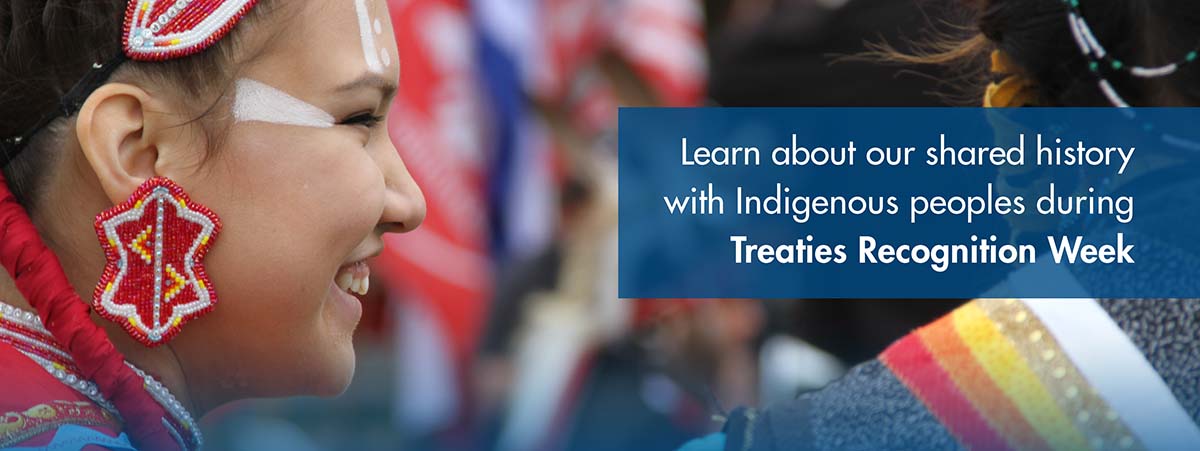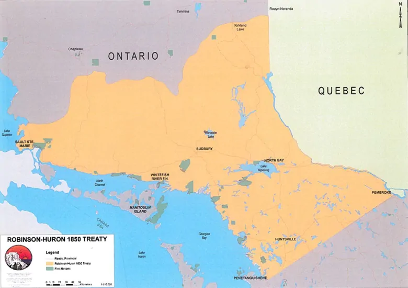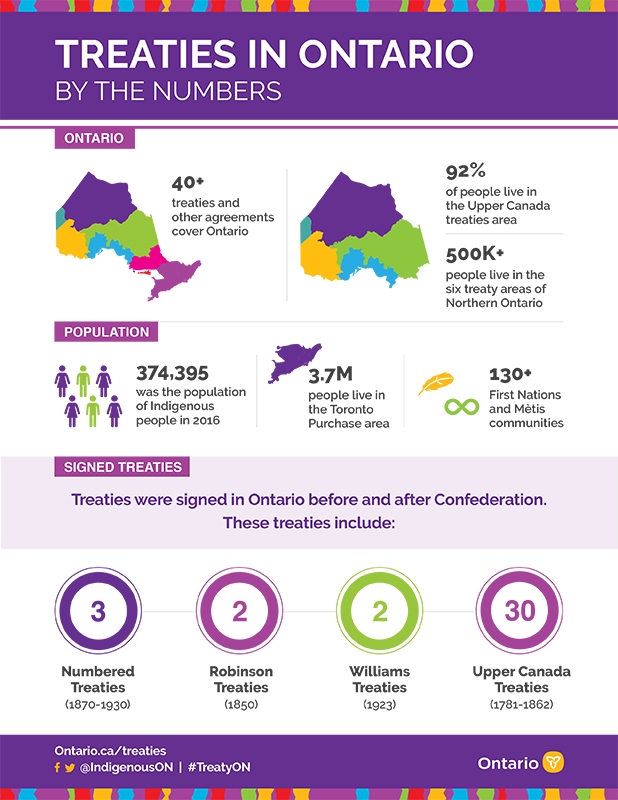
In 2016, Ontario passed the first legislation of its kind in Canada declaring the first week of November as Treaties Recognition Week. This year, Treaties Recognition Week is November 3-9, 2024.
Treaties Recognition Week honours the importance of treaties and helps us understand the significance of treaty rights, treaty relationships and their relevance today. By learning more about our collective treaty rights and obligations, we can create greater understanding and nurture relationships between Indigenous and non-Indigenous peoples.
Be sure to drop by Enji giigdoyang, the Office of Indigenous Initiatives (F215) to view a Treaty Recognition display with wampum belt completed by the Indigenous Student Mentors.
What are the Treaties?
The peaceful settlement of Canada was made possible when Indigenous peoples agreed to share with European settlers the lands they had occupied since time immemorial because of promises made in treaty agreements. Despite being recognized and affirmed in Canada's Constitution Act of 1982, and by numerous Supreme Court decisions, provincial and federal governments routinely ignore these underpinnings of Canada's rule of law.
Learn about the treaties that cover your area.
Why is Treaties Recognition Week Important?
Treaties Recognition Week also represents one of many steps on Ontario’s journey of healing and reconciliation with Indigenous peoples. Launched in 2016 in response to the Truth and Reconciliation Commission’s Calls to Action to increase treaty awareness, it provides students and the public with an important opportunity to learn why treaties matter to all Ontarians.
Each year, Ontario hosts events to promote understanding around treaty rights, treaty relationships and their relevance today.
Maurice Switzer, Bnesi, is a citizen of Alderville First Nation, where his grandfather Moses Muskrat Marsden was Chief from 1905-1909. He lives in North Bay and is a member of the Washushk (Mississauga) and Okwaho (Kanien'keha) clans.
Land Acknowledgement
Nipissing University sits on the territory of Nbisiing Anishinaabeg, within lands protected by the Robinson Huron Treaty of 1850. We are grateful to live and learn on these lands with all our relations.


Resources
Ontario Treaties Recognition Week
History of Treaties in Ontario
Resources for Teachers and Educators
Truth and Reconciliation Commission’s Calls to Action
University of Toronto: We Are all Treaty People Resources
Educational Resources and Booklets from Anishinabek Nation
Anishinabek Nation: Treaty Education, Ezhi-nawending: How we are related

